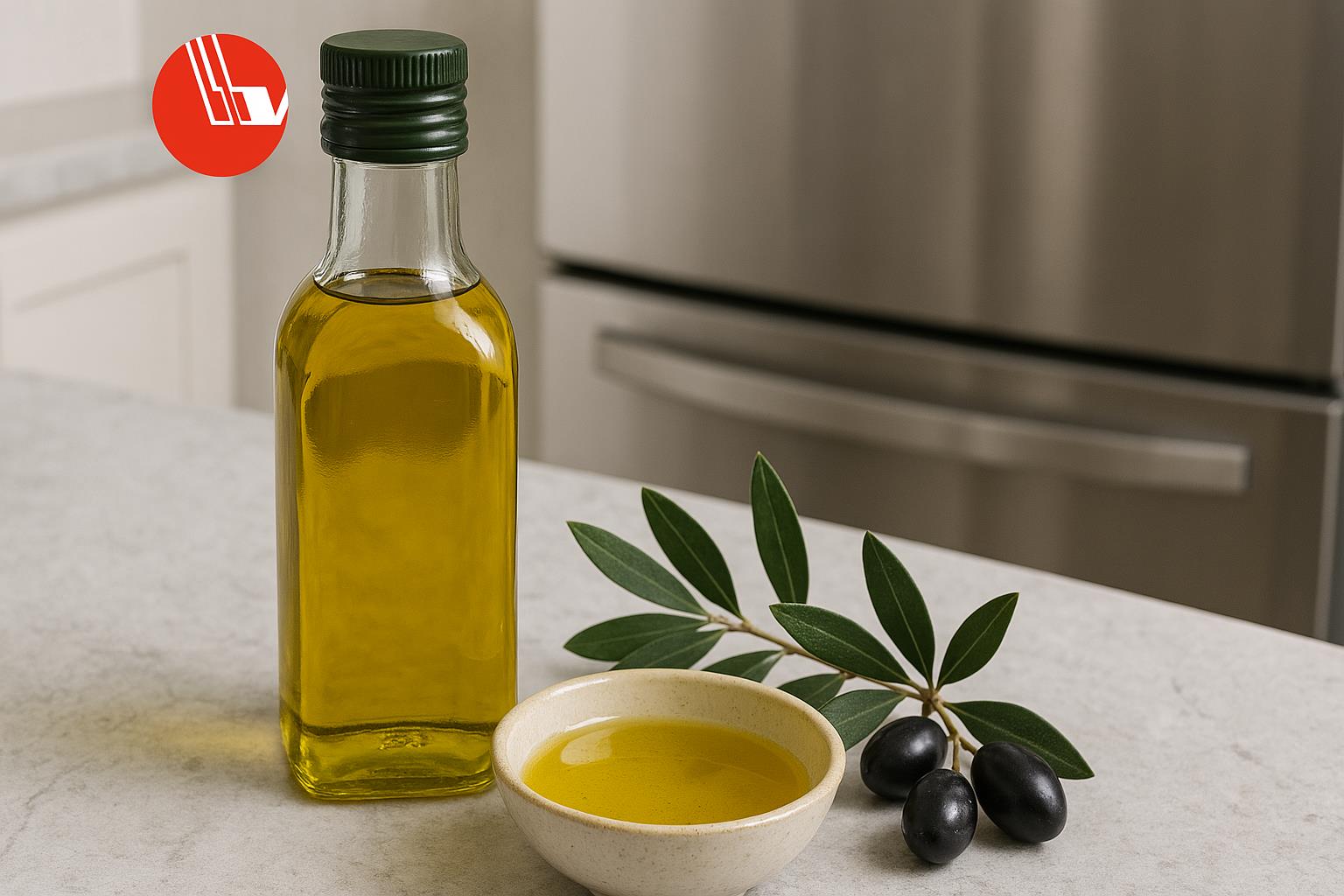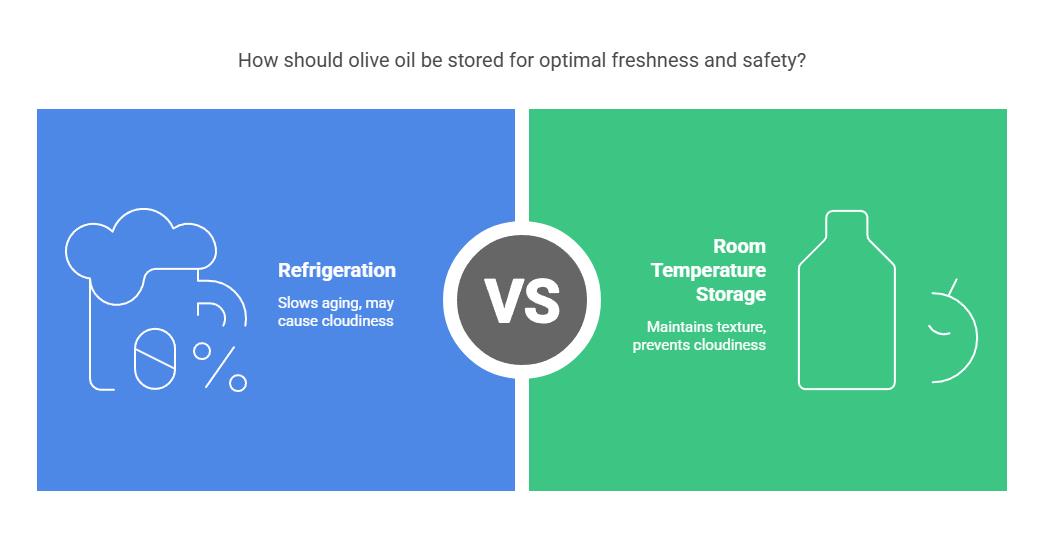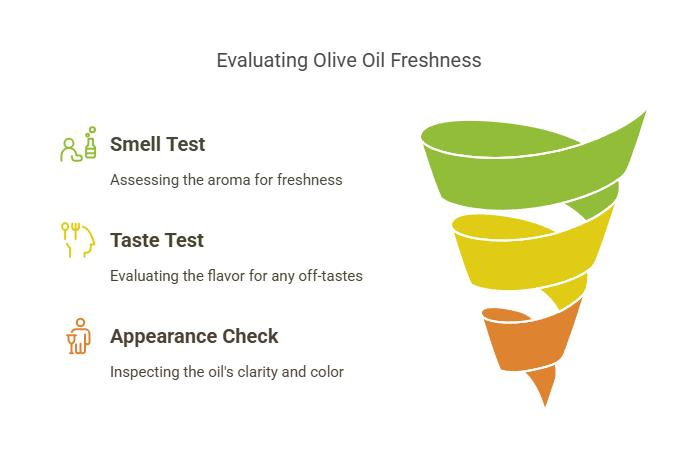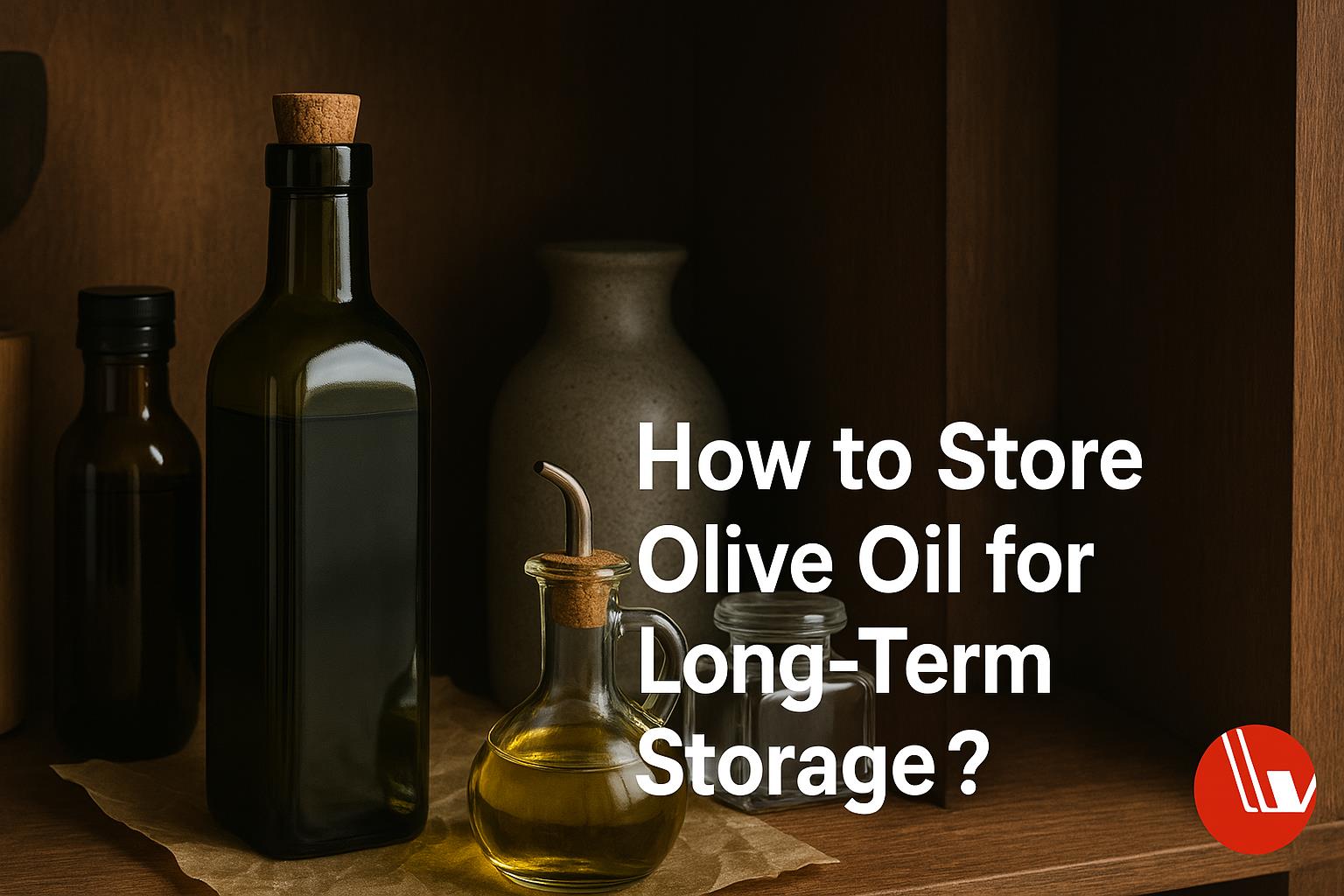Should You Refrigerate Olive Oil? Truth You Need To Know!
Time of issue: 2025-04-18 14:22:49
You don’t need to store your olive oil in the refrigerator. Keeping it in a dark and cold place is enough to maintain its freshness and quality. Storing it in the refrigerator can make the oil codify and solidify. though it's still safe to use. Just warm it up to room temperature, and it’ll be ready to use.
Air, light, and heat can make olive oil rancid easily. For a long-lasting freshness, store it in a dark or opaque glass bottle, sealing it properly. Also, keep it in a dark, cold place. This way you can save it from heat and light. Though, it's not recommended for daily use, but for long-term storage, refrigerating is a good option.
At Global Reach Ceramic, we offer high-quality ceramic products to enhance your kitchen. Check out our collection to make your kitchen both beautiful and functional!
The Impact of Olive Oil Quality on Its Storage
How you store your olive oil plays a huge role in keeping it fresh and tasty. Olive oil hates heat, light, and air. They all speed up the process of it going bad. To get the most out of your oil, keep it in a cool, dark spot. Like a pantry or cupboard, away from closer contact of the stove or windows. That’ll help it stay fresh longer.
The type of olive oil container matters, too. If your olive oil is in a glass bottle, make sure it’s dark or opaque to block out light. Also, make sure it has an airtight seal to keep air from ruining the oil. If you use olive oil often, try transferring it to a smaller bottle so you're not exposing the whole container to air each time you open it. Simple storage tricks like these can help keep your oil tasting its best for longer!
Does Olive Oil Need to Be Refrigerated?
No, olive oil doesn’t need to be refrigerated. In fact, refrigerating olive oil can cause it to become cloudy and even solidify, though this doesn’t mean it’s bad. If that happens, just warm it up to room temperature, and it will return to its normal state.
For everyday use, storing olive oil in a cool, dark place, like your pantry, is the best option. This helps preserve its flavor and quality. If you won’t be using your olive oil for a long time, refrigeration might be a good idea to keep it fresh longer. But in general, room temperature is ideal for keeping your olive oil at its best. Just make sure to use it within a few months of opening to enjoy its full taste and health benefits!
Myths About Refrigerating Olive Oil

There are a few myths about refrigerating olive oil that you might have heard. Let’s clear them up!
Myth 1: Refrigerating Olive Oil Keeps It Fresh Longer
Refrigerating olive oil might slow down its aging process, but it’s not necessary for most people. Olive oil stored in a cool, dark place (like your pantry) will stay fresh for months. You only need to refrigerate it if you’re planning to store it for a long time, but be aware that it can get cloudy and even solidify in the fridge. Don’t worry. It’s still safe to use!
Myth 2: Olive Oil Must Always Be Kept in the Fridge
You don’t need to store olive oil in the fridge all the time. In fact, it’s best to keep it at room temperature in a cool, dark spot away from heat and light. Refrigerating it can change its texture and make it cloudy, which isn’t necessary unless you're storing it for a long period.
Myth 3: Olive Oil Is Unsafe If Stored in the Fridge
Nope, it’s totally fine to store olive oil in the fridge if you want to. The only downside is that it will become cloudy or solidify, but that’s normal. Once you bring it back to room temperature, it’ll return to its normal state, and you can use it just like usual.
Myth 4: All Olive Oils Need the Same Fridge Treatment
Not all olive oils should be treated the same way. Extra virgin olive oil (EVOO) is best stored in a cool, dark cupboard, and you don’t need to refrigerate it unless you're storing it for months. For everyday use, it’s perfectly fine to leave it out, as long as it’s kept away from heat and light.
How to Tell if Olive Oil Has Gone Bad

Smell
One of the first things you should do is take a sniff. Fresh olive oil has a nice, fruity, and sometimes peppery smell. If it smells off, musty, or greasy, it's a sign that it’s gone bad. Don’t be afraid to trust your nose. If it doesn’t smell fresh, it’s probably time to toss it.
Taste
Next, give it a little taste. Good olive oil should taste fresh, with a slight peppery or grassy kick. If it’s bitter, sour, or just flat, that’s another red flag that the oil isn’t good anymore. A little bitterness is normal, but if it tastes stale or rancid, it’s time for a new bottle.
Appearance
Take a look at the oil, too. If your olive oil looks cloudy or murky at room temperature (and you haven’t stored it in the fridge), that could mean it’s gone bad. Olive oil should look clear and golden or greenish, depending on the type, when it’s fresh.
How to Store Olive Oil for Long-Term Storage?

Proper storage of olive oil is crucial if you want to keep it fresh and flavorful for as long as possible. The key is to protect it from heat, light, and air. All of which can make the oil go rancid quicker.
Find the Right Spot
The best place to store olive oil is in a cool, dark cupboard or pantry. Away from the direct sunlight and heat sources like stove or oven. Heat and light break down the oil’s quality, so the darker and cooler the better.
Use the Right Container
Olive oil should be kept in a dark or opaque glass bottle to protect it from light. If your oil is in a clear bottle, consider transferring it to a dark one to keep it fresh for longer. Plastic containers can affect the taste of olive oil over time, so glass is always a better option.
Seal It Well
Make sure the bottle is tightly sealed when not in use. Exposure to air speeds up oxidation, which can ruin the oil’s flavor and quality. If you have a large bottle, consider transferring some of it into a smaller one to avoid constantly opening the big bottle.
Refrigeration for Extra Freshness
If you’re not going to use the olive oil for a while, refrigerating it is a good way to extend its shelf life. While it will get cloudy and may solidify, this doesn’t mean it’s gone bad. Let it come to room temperature before using it, and it will return to its normal state.
Common Mistakes to Avoid When Storing Olive Oil
One thing people often do is store olive oil in clear bottles, but that’s not a good idea! Light can really mess with the oil’s flavor and freshness, so make sure you’re using a dark or opaque bottle to keep it safe from light.
Another mistake is putting your olive oil near heat, like on the counter next to your stove. Heat can make the oil go bad faster. The best place to store it is in a cool, dark spot, like your pantry or a cupboard.
It’s also easy to forget to seal the bottle properly. Air can cause the oil to spoil, so always make sure the cap is on tightly after you use it. And remember, olive oil doesn’t last forever! It’s best to use it within a few months of opening, so buying smaller bottles can help you finish it while it’s still fresh.
If you’re thinking about putting your olive oil in the fridge to keep it fresh, that’s okay, but keep in mind that it might get cloudy or even solidify. This is totally normal, though, and it doesn’t mean it’s bad. It’ll go back to normal once it warms up. But if you’re not storing it long-term, you don’t need to refrigerate it. Just follow these simple tips, and your olive oil will stay fresh and always ready to use!
Final Verdict
Alright, here’s the simple truth: You don’t have to refrigerate your olive oil. Just keep it in a cool, dark place, like your pantry, and it’ll stay fresh and flavorful for months. If you do choose to refrigerate it, it might get cloudy or even solidify, but that’s totally normal. Just let it sit at room temperature for a bit, and it’ll be good to go again! And remember, once you open the bottle, it’s best to use the oil within a few months to enjoy the freshest taste and all its health benefits.
By following these easy storage tips, you’ll make sure your olive oil stays as fresh as the day you bought it. Whether you’re cooking up a storm, tossing a salad, or dunking some bread, you’ll get the most out of every drop.
And if you're looking for unique, handcrafted ceramics to elevate your kitchen, head over to Global Reach Ceramic. We’ve got just what you need to add style and function to your space!
Frequently Asked Questions
Question: Does Olive Oil Go Bad if It Gets Cold?
Answer: Olive oil won’t go bad if it gets cold, but refrigeration can cause it to become cloudy or solidify. This is completely normal and doesn’t mean the oil has gone bad. The oil will return to its usual state once it warms up to room temperature. However, if you’re storing olive oil for long periods, keeping it in the fridge can extend its shelf life. Just remember, for everyday use, it’s best to store it in a cool, dark place.
Question: How Long Does Olive Oil Last After Opening?
Answer: Olive oil is best used within 1 to 3 months after opening for the best taste and quality. While it doesn’t spoil immediately, its flavor and freshness can degrade over time. If stored properly in a cool, dark place, olive oil can last up to a year, but it’s ideal to use it sooner for the best flavor and health benefits.
Question: Can Olive Oil Go Rancid?
Answer: Yes, olive oil can go rancid if it’s exposed to heat, light, or air for too long. Rancid olive oil will have a sour, unpleasant smell and taste. To avoid this, store your olive oil in an airtight container in a cool, dark place, and use it within a few months of opening.
Question: Why Does My Olive Oil Have a Bitter Taste?
Answer: A slight bitterness is actually a sign of high-quality extra virgin olive oil, which contains healthy antioxidants called polyphenols. If your olive oil tastes overly bitter or unpleasant, it may be due to the oil being too old, improperly stored, or of lower quality. Fresh olive oil should have a balanced, peppery taste with some bitterness.
RECENT POSTS
- Ceramic Cookware vs Cast Iron: What Should You Choose?
2026-01-19
- Ceramic Glazing Techniques & Benefits in 2026
2026-01-19
- The Benefits of Wholesale High-Quality Ceramic Products for Retailers
2025-12-17
- Can You Make an Ashtray with Air Dry Clay? Pros, Cons, and Safer Alternatives
2025-12-17
- The Impact of Ceramic Materials in Energy-Efficient Buildings: Benefits and Applications
2025-12-04
- Top 7 Ceramic Cookware Health Benefits: Why It’s a Safer Choice for Your Kitchen
2025-12-04
- How to Clean Ceramic Planters and Improve Their Lifespan?
2025-11-17
- 15 Best Ceramic Holiday Gift Ideas for 2025: Thoughtful, Elegant & Heartfelt
2025-11-17










